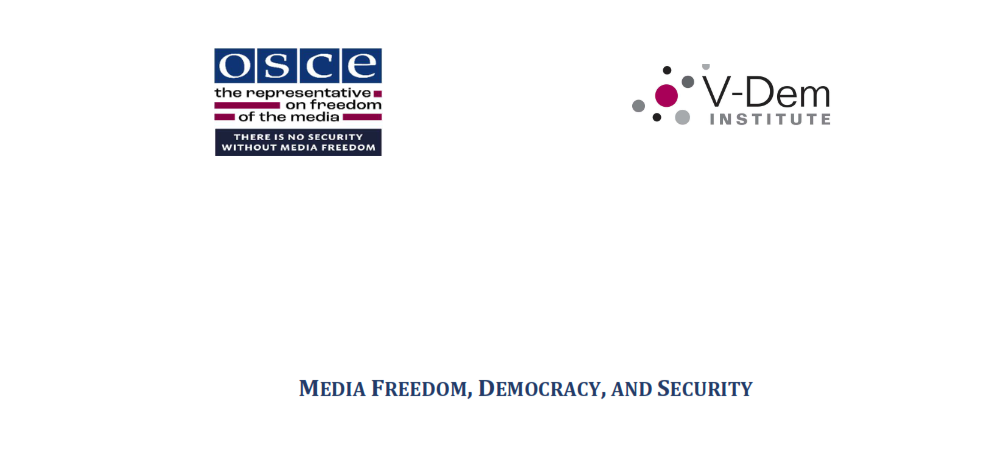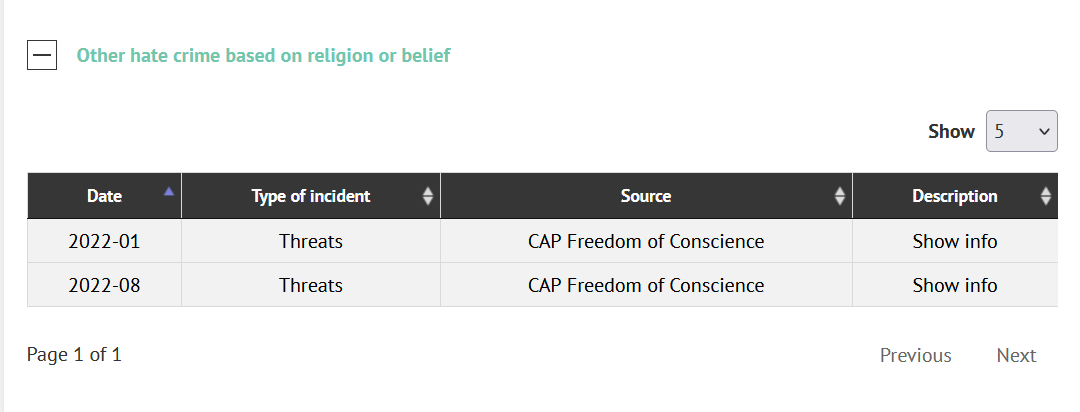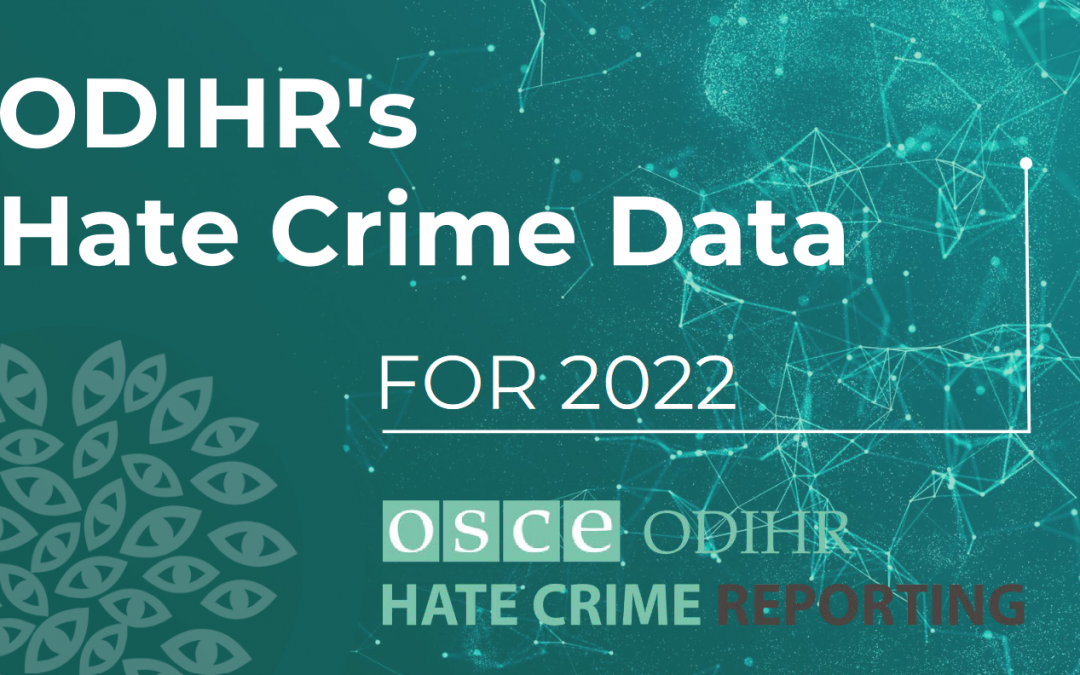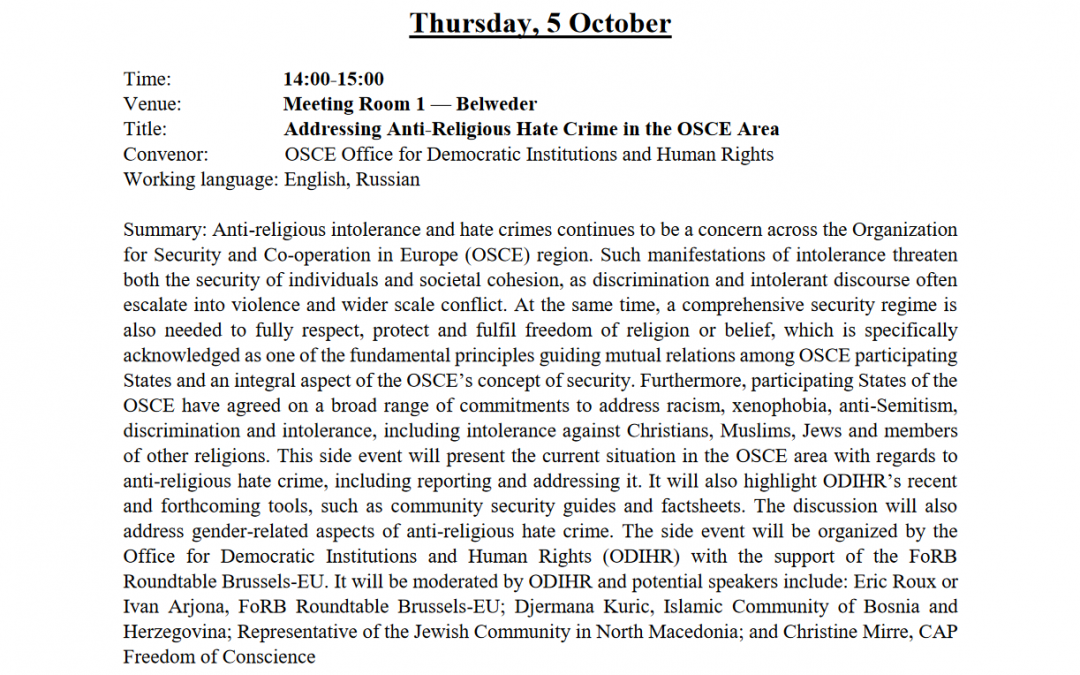
by CAP Liberté de Conscience | Jul 18, 2024 | news
A recent study commissioned by the OSCE Representative, on Freedom of the Media has revealed the connections between media freedom, democracy and global and local security. The detailed research document, crafted by a team from the Varieties of Democracy Institute at the University of Gothenburg presents evidence on why safeguarding media freedom is vital for upholding peace and stability within and among nations.

by CAP Liberté de Conscience | Jan 4, 2024 | OSCE
ODIHR recognizes France’s efforts to address hate crimes in a comprehensive manner, and improve its hate crime data collection. However, based on available information, it observes that France’s hate crime recording and statistics do not sufficiently distinguish hate crimes from other crimes. In addition, ODIHR observes that France would benefit from enhancing its efforts to build the capacity of prosecutors and judges to prosecute and sentence hate crimes.

by CAP Liberté de Conscience | Jan 4, 2024 | news, OSCE
WARSAW, 16 November 2023 – Launching its annual Hate Crime Report on today’s International Day for Tolerance, the OSCE Office for Democratic Institutions and Human Rights (ODIHR) emphasized the importance of identifying the underlying bias motives of hate crimes in order to diminish the impact on victims and assist their recovery.

by CAP Liberté de Conscience | Oct 7, 2023 | news, OSCE
Anti-religious intolerance and hate crimes continues to be a concern across the Organization for Security and Co-operation in Europe (OSCE) region. Such manifestations of intolerance threaten both the security of individuals and societal cohesion, as discrimination and intolerant discourse often escalate into violence and wider scale conflict. At the same time, a comprehensive security regime is also needed to fully respect, protect and fulfil freedom of religion or belief, which is specifically acknowledged as one of the fundamental principles guiding mutual relations among OSCE participating States and an integral aspect of the OSCE’s concept of security. Furthermore, participating States of the OSCE have agreed on a broad range of commitments to address racism, xenophobia, anti-Semitism, discrimination and intolerance, including intolerance against Christians, Muslims, Jews, and members of other religions.

by CAP Liberté de Conscience | Sep 25, 2023 | CAP LC Event Coming, OSCE
Anti-religious intolerance and hate crimes continues to be a concern across the Organization for Security and Co-operation in Europe (OSCE) region. Such manifestations of intolerance threaten both the security of individuals and societal cohesion, as discrimination and intolerant discourse often escalate into violence and wider scale conflict. At the same time, a comprehensive security regime is also needed to fully respect, protect and fulfil freedom of religion or belief, which is specifically acknowledged as one of the fundamental principles guiding mutual relations among OSCE participating States and an integral aspect of the OSCE’s concept of security. Furthermore, participating States of the OSCE have agreed on a broad range of commitments to address racism, xenophobia, anti-Semitism, discrimination and intolerance, including intolerance against Christians, Muslims, Jews and members of other religions. This side event will present the current situation in the OSCE area with regards to anti-religious hate crime, including reporting and addressing it. It will also highlight ODIHR’s recent and forthcoming tools, such as community security guides and factsheets. The discussion will also address gender-related aspects of anti-religious hate crime. The side event will be organized by the Office for Democratic Institutions and Human Rights (ODIHR) with the support of the FoRB Roundtable Brussels-EU







